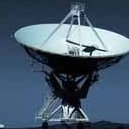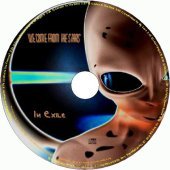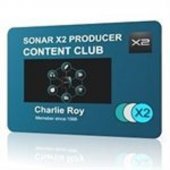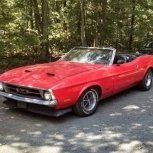-
Posts
4,454 -
Joined
-
Last visited
-
Days Won
5
David Baay last won the day on March 9
David Baay had the most liked content!
Reputation
2,185 ExcellentRecent Profile Visitors
4,706 profile views
-
Not the typical experience of course. You should submit a crash dump to Support.
-
~30% average engine load with peaks over 100% indicates DPC Latency spiking issues. I'm not sure why Sonar would be more sensitive to that than CbB on your system, but both of them are showing it and suffering for it. So check your DPC Latency and figure out what's causing it. https://www.resplendence.com/latencymon Common offenders are onboard WiFi and Bluetooth which can be disabled in BIOS if necessary. Some laptops will also suffer from issues with power management either because CPU is being throttled or just due to the activity of ACPI.SYS causing DPC spikes.
-
... or you're not using tempo-synced FX or arps, which is my excuse for not picking it up. Almost all my projects use fractional tempos because they're set from recordings made without a click, but I haven't used any tempo-synced FX recently. I'll have to add that to my regression watch list. ;^) Noel, does this mean there might still be subtle sync errors if the tempo is changing frequently by small amounts? I sometimes snap the timeline to every beat of a freely-recorded piece but leave all or most of the variability intact. If the piece lends itself to using tempo-synced FX, that variation is likely to get flattened to a fixed tempo, but not always. Just curious whether your caching approach would accomodate that.
-
Check that your Playback I/O [disk] Buffer is the same in Sonar as in CbB. And do remove the Realtek ASIO entry from the registry; probably of no consequence, but it's not compliant and Sonar won't work with it anyway so it might as well be invisible. If you ever have a need to use the Realtek interface, change Sonar to WASAPI mode. The "Configuration File" is AUD.INI; in the past we would rename it manually to have a new default one would be created automatically on launch. The Reset function just makes it easier, automatically backing up the existing file and replacing it with the default. Doing this after removing Realtek ASIO from the registry will ensure that AUD.INI contains no reference to it. You might also try unchecking that 'Low Latency mode' box in the QuadCapture's ASIO panel. That reduces the interface's internal firmware buffer at the cost of some dropout-resistance.
-

Bug? Intermittently empty Export Audio dialog
David Baay replied to Jan Deeben's topic in Cakewalk Sonar
File > Export > Audio and Export [module] > Advanced... should open the same UI by the same underlying method. If there's a difference in the result, it's probably down to some interoperability issue with Win10 as Noel suggested. But possibly that info can lead to an easy fix. -
I can't repro this, and not sure what might cause it other than some mutually exclusive state like having an ARA FX applied.
-

[Solved] Audio Preview Bus Selection: Where Did It Go?
David Baay replied to MisterGreen's topic in Cakewalk Sonar
Preview bus is now set by right-clicking the desired bus and selecting 'Set as Preview Bus'. -
I agree the pointer could be improved, but I can't repro that the results are that wildly inconsistent/imprecise/unexpected in the Staff View. Can you post an example of MIDI track/file that exhibits this with some frequency?
-
A few more things to check/try: Uninstall Steinberg Generic Low Latency ASIO driver if present. Remove Realtek entry from HKEY_LOCAL_MACHINE\SOFTWARE\ASIO in the registry. Reset AUD.INI via Preferences > Audio > Configuration File > Reset... If it doesn't help, you can restore the backup that the process creates. If it does help you can compare the two files to see what's different. And, of course, make sure you're testing with the same project using the same audio and MIDI driver selection(s).
-

Problems with delay per articulation feature.
David Baay replied to Nigel Simmons's topic in Cakewalk Sonar
What's the exact scenario (i.e. what delay values, what tempo, where does the switch occur, and where are notes relative to the articulation start/end points). Maybe share a simple demo project. I once had a project that exhibited a change in note volume related to an issue with articulation delays, but I reported it, and the problemis no longer reproducible in in the current release. Possibly you've encountered another manifestation of that problem. -

External Insert and Graphics Issues in Sonar
David Baay replied to Tommy Byrnes's topic in Cakewalk Sonar
I guess it could depend on what else is going on in the project in the way of PDC and overall processing load but I definitely have not seen anything like that, even with a 2048-sample buffer at 48kHz. -

External Insert and Graphics Issues in Sonar
David Baay replied to Tommy Byrnes's topic in Cakewalk Sonar
Are you sure about the length of that delay? I think the gap that Noel is talking about is more on the order of an audio buffer or two - maybe 50-100ms if you're running a large buffer. The gap I get is like that - a small fraction of a second.











